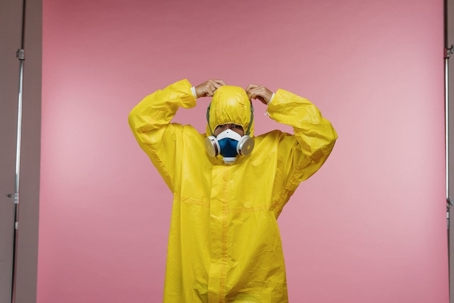Care must be taken when disposing of biohazardous waste to ensure that it does not come into contact with humans, as it can be deadly. You may think that biohazardous waste disposal is something that only happens in movies or TV shows. However, the truth is that this type of waste disposal is a genuine and vital part of our world.
It is any waste containing infectious materials or potentially harmful chemicals. This waste can come from hospitals, laboratories, or even homes. The most important thing to remember about biohazardous waste is that it can be hazardous to human health. That is why it is necessary to rely on professionals for biohazard cleaning.
There are a few different ways to dispose of biohazardous waste. The most common method is to incinerate the waste. This method is effective because it destroys all harmful materials in the trash.
Another method of disposal is to bury the waste. This method is not as standard as incineration but can be adequate if done correctly. The most important thing to remember when disposing of biohazardous waste is to be very careful. This type of waste can be hazardous to humans, so it is essential to take all the necessary precautions.
Classification of Biohazard
There are many different types of materials that are classified as biohazard. These include human and animal waste, blood, body fluids, and certain chemicals. Materials classified as a biohazard can pose a severe health risk to people who come in contact with them. It is essential to take precautions when handling these materials and to dispose of them properly.
Human and animal waste can contain harmful bacteria and viruses. Blood and body fluids can also transmit diseases, while certain chemicals can be toxic if inhaled or ingested.
When biohazard cleaning experts dispose of these materials, they will use proper safety equipment. It includes gloves, masks, and protective clothing. Waste should be placed in sealed bags or containers and disposed of in a designated biohazard waste disposal site. By taking proper precautions, you can protect yourself and others from the dangers of biohazards.
You may not consider your beloved pet a potential biohazard, but any waste from a non-human animal is considered a biohazard. It includes animal feces, urine, blood, and other body fluids. While your pet may not be sick, it can carry diseases that can harm humans. For example, dogs and cats can carry Salmonella, which can cause human food poisoning.
It is necessary to clean up your pet correctly to prevent the spread of disease. Always pick up and dispose of animal waste in a plastic bag, and wash your hands afterward.
Levels of Danger
We often consider biohazards dangerous, but some are more dangerous than others. Here is a look at some of the most harmful biohazards and why they are so fatal.
One of the most dangerous biohazards is Ebola. Ebola is a virus that causes severe hemorrhagic fever and is often fatal. The virus is spread through contact with bodily fluids, which can be extremely difficult to control.
Another dangerous biohazard is anthrax. Anthrax is a bacteria that can cause severe respiratory illness and can be deadly. The bacteria is spread through contact with infected animals or their products, which can be challenging to treat.
Conclusion
It is vital to leave biohazard cleaning to the experts for many reasons. First and foremost, experts have the training and experience needed to safely and effectively clean up hazardous materials. They also have the proper equipment to protect themselves and others from exposure to dangerous substances. Finally, experts can help you prevent further contamination by following proper protocols for disposing of hazardous waste.
If you are in a business that involves biohazardous materials, it is prudent to ask for help from DryZone. We offer biohazard cleaning to Marco Island residents. This way, everyone in the community will remain safe and healthy. So, call us now for more information!


